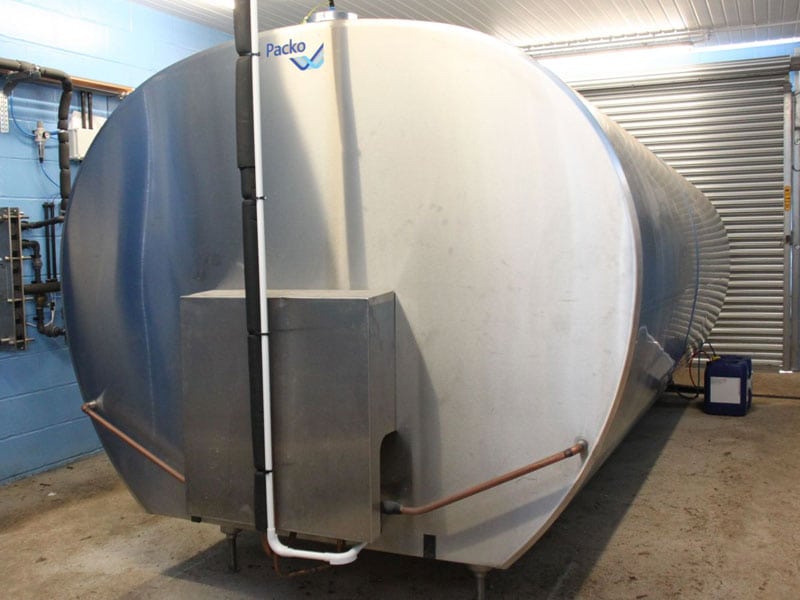Farmer/owner: Clyde and Helen Parker
Farm location: Rossett, near Wrexham
Farm name: Hem House Farm
Herd: 170 cows
Milking system: Three Fullwood M2erlin robots
Date of installation: November 2014
As a small family business with just one full-time employee, some part-time staff and a relief milker, time is one of the farm’s biggest constraints: with 120 cows being milked through an outdated parlour, each milking was taking the best part of four hours to complete. It was for that reason, plus economic pressures, that, for the last 10 years, the cows were only being milked once per day.
Helen explains “we were milking once a day to reduce labour and overhead costs and to maximise the longevity of our cows. It’s a system which might not be appropriate for other business models, but it suited our flood-prone farm and our organic farming ethos.”
The herd at Hem House has historically been milked through a conventional herringbone parlour – the first Fullwood 8:16 parlour was installed in 1965 and upgraded to a 20:20 configuration with ACRs and flow meters in 1993. Twenty-three years later, the parlour has been replaced by three Fullwood M2erlin robots which were commissioned in late November 2015.
The robots have been housed in an existing straw yard cow shed, with a new 12,000 litre Packo bulk tank and ancillary dairy and parlour equipment contained within a new building next door.
“We knew we faced a choice of either ceasing milk production or making our entire operation more efficient and more productive,” Clyde says. “We purposely decided to build extra capacity into the new system and actually have enough resources to milk up to 180 cows. The farm is now future-proofed for the long-term”.
Unlike other robotic herds, the cows at Hem House Farm don’t wear activity pedometers, instead using standard ID collars. “We run three stock bulls in with the cows and don’t use artificial insemination,” Clyde adds, “partly because we try to keep things as simple and easy to manage as possible, but also because, with a calving index of 365, we have no need to improve the herd’s fertility”.
Since commissioning the robots, the Parkers have seen a considerable uplift in milk yields: prior to making the switch to automated milking the herd was averaging 12 to 16 litres per cow per day. Today that figure has risen to 22.5 litres per cow per day: partly as a result of increased feed usage, but also because of an increased milking frequency.
“The herd still has 24 hour access to fresh grass from April to November, but even so, we’re achieving an average of 2.2 milkings per cow per day,” Clyde explains. That figure will rise to more than three milkings per day when the cows are housed during the winter, and without the need for any additional labour.
To begin with it wasn’t all a bed of roses, but within a fortnight every cow had progressed to twice a day milking. “A month later we were seeing some cows being milked five times per day,” Clyde continues. “We’ve now limited the maximum number of milkings to four in 24 hours in order to protect cow longevity and to reduce stress on the herd’s high yielders.”
The Parkers spent two years researching which robots and layout would be best suited to their farming system, and had to factor in one major anomaly: they run three bulls (two Friesians and a Montbeliarde) in with the cows so the robots had to be able to cope with their size and weight.
The robots are also able to cope well with the herd’s older cows, some of which are currently in their 8th or 9th lactation. “We thought some of them might struggle to adapt, either as a result of the new way of milking or simply because their teats and udders were the wrong shape or size for the robot to find. But the Fullwood machines have been able to milk each and every cow – from the youngest heifers to the oldest cows with very low and awkwardly angled teats. So far the entire system is working just as we’d hoped. There’s very little we’d do differently and we’re excited about a better, more efficient future.”
